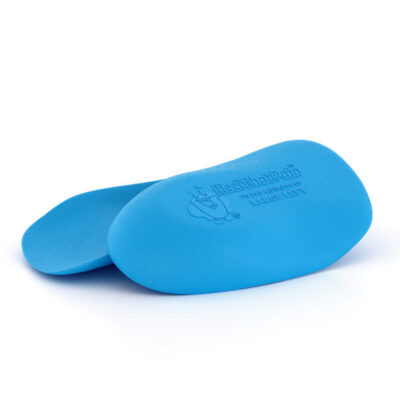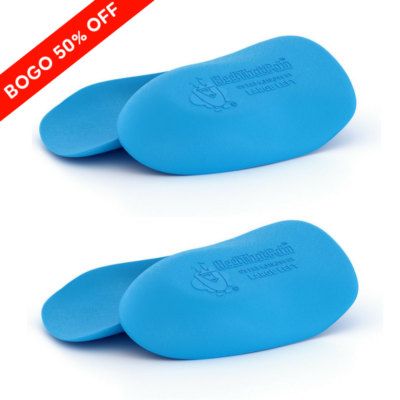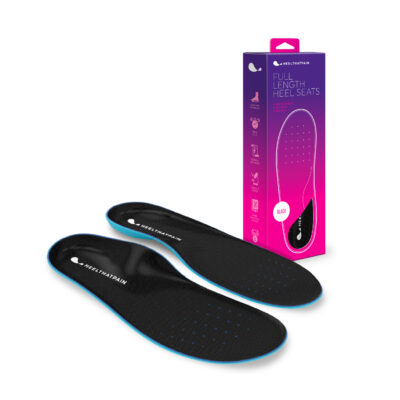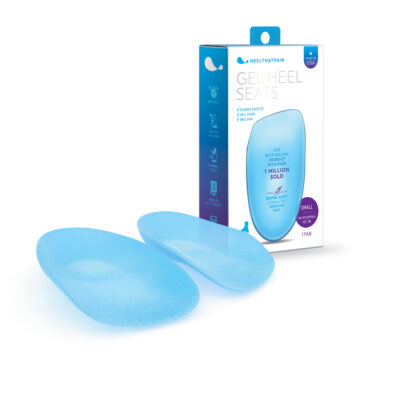Heel Pain During Pregnancy
The goal of this article is to help you assess the foot discomfort you may be experiencing and to access good information about regaining your well-being. Heel That Pain supports healthy, happy mothers-to-be!
Why Heel Pain Can Result From Weight Gain
As your pregnancy progresses and you gain healthy weight, your stance will go through subtle changes to support your developing baby. The new pounds can cause ‘pronation’ – a physical change in the way your foot’s arch flattens out when it touches the ground, causing your steps to roll inward. This then places a new, unusual source of strain on the elastic plantar fascia ligament which spans the bottom of your foot from heel bone to ball.
If inflammation results and small tears develop in the tissue of the ligament, a podiatrist may diagnose this as Plantar Fasciitis. If left untreated, Plantar Fasciitis can become extremely painful and can lead to secondary issues such as the development of heel spurs that can continue to cause discomfort, even after the birth of your child.
Shop our all-natural heel pain treatments!
Differentiating Between Achy Feet And Plantar Fasciitis
Everyone experiences sore, tired feet once in awhile, particularly after a busy day or after strenuous exercise. This is usually nothing to worry about. This type of pain will generally resolve itself in a day or two. Expectant mothers may also experience mild swelling in the feet during the second and third trimesters.
However, if you are expecting and you’ve begun to notice that foot pain is becoming a constant symptom, don’t ignore it. The hallmark symptom of Plantar Fasciitis is pain mostly localized in the bottom of your heel, either when you first get out of bed in the morning, or when you get to your feet after being seated for some time. You may notice that the discomfort decreases after being up and about for a short time. Pain may be described as aching, burning, sharp or hot-feeling. The nagging presence of this type of pain can wear on your nerves, leaving you feeling irritable or upset.
If these symptoms sound familiar to you, there is a chance that the weight gain associated with pregnancy may have caused you to develop Plantar Fasciitis. We urge you to talk to your doctor about any discomforts of any kind that you experience throughout your pregnancy, but the good news is that most cases of Plantar Fasciitis can be resolved at home with simple, natural methods.
How Plantar Fasciitis Is Treated During Pregnancy
Podiatrists state that more than 90% of Plantar Fasciitis cases can be resolved with conservative, at-home treatment. Your recovery will typically revolve around the following, simple steps:
- Wear properly-fitting shoes. High heels, narrow toes and a bad fit can actually cause you to develop Plantar Fasciitis and a host of other painful ailments. Wear shoes that support your arches, cushion your heels and offer toes room to flex and stretch. It’s especially important to wear shoes with a great fit during pregnancy to maintain balance and prevent falls. If you are experiencing foot swelling, you may need to wear shoes with a little extra room, or orthotic sandals.
- Purchase orthotic shoe inserts designed specifically for the condition of Plantar Fasciitis. Over-the-counter supermarket shoe inserts are intended to provide comfort and support, but not to treat plantar fasciitis. Instead, opt for something intended to resolve the underlying physical problem, not just treat the symptoms.
- Rest your feet. While doctors prescribe moderate exercise for most expectant mothers, it’s vital to your health and the health of your baby that you get adequate rest during daytime hours. Sit down, put your feet up and relax.
- Ice your heels. Read more about these simple, inexpensive Plantar Fasciitis icing options. Ask your obstetrician if it’s safe for you to apply ice.
- Heel stretching exercises can help to strengthen the injured plantar fascia ligament. Share our page of free heel stretching videos with your obstetrician to inquire which ones it will be safe for you to do.
With these five steps, you will be able to recover from this painful condition in nine out of ten cases, without the use of drugs and without the need for surgery. Most Heel That Pain customers report symptom relief within about a week of using our orthotics, in combination with rest and icing. Once you are out of pain, chances are you will feel so much better both physically and emotionally. Many moms-to-be also find additional therapies such as meditation or specialized pregnancy yoga exercises support their overall sense of well-being during the months of pregnancy. Our goal is to offer you the support you need to maintain healthy feet in the coming months.






